Previously, we showed you how to install Mac OS X Snow Leopard using VMware in Windows 7. Since VMware license costs a lot, the good news is that you can now install OS X in Windows using one of the most popular free virtualization software called VirtualBox. You’ll need to have a system with an Intel or AMD processor which supports hardware virtualization, OSX86 iso, VirtualBox and Windows 7, Vista or XP installed as host operating system. If you meet all these requirements, you can then install OS X Snow Leopard as a VM under Windows to enjoy the best of both worlds.
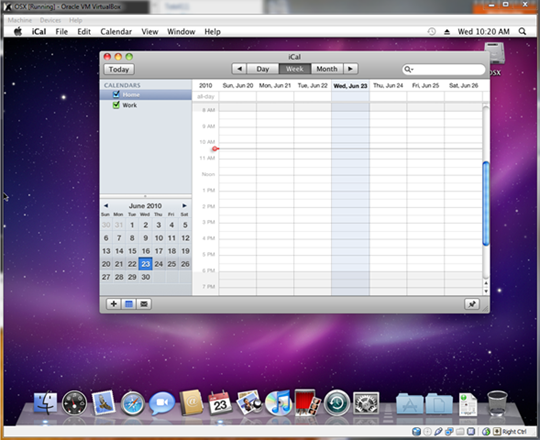
Step 1: Download and install the latest version of VirtualBox for Windows.
Step 2: Start VirtualBox and click on “New” button. This will start a wizard that will help you create a new VM in VirtualBox.
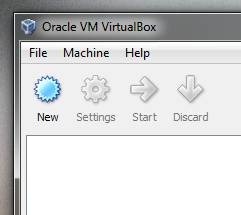
Step 3: Name your VM “OSX” and select “Mac OS X” from Operating System dropdown menu, and “Mac OS X Server” from Version dropdown menu.
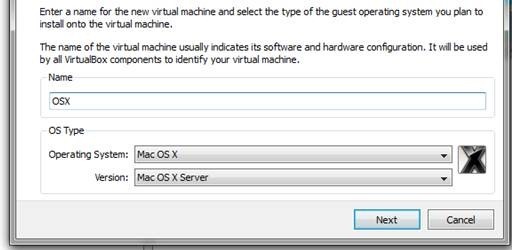
Step 4: Assign your VM some Ram in megabytes. For this tutorial, I have allotted the max 1500MB of Ram.
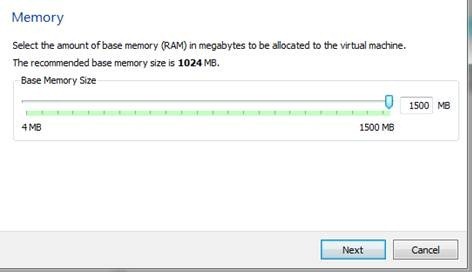
Step 5: Now create a new hard disk for your VM, which depending on your needs should be around 20GB in size. If you use Dynamic option, it will expand on use while Static option will be fixed to the size you allotted. Select the option which best fits your needs and click on Next to finish the wizard.
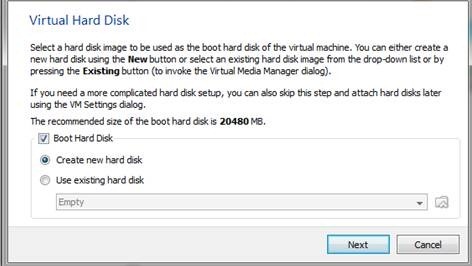
Step 6: Now click on “Settings” and select “System” from the left pane and then uncheck the option for “Enable EFI (special OSes only)” in the right as shown in the screenshot below.
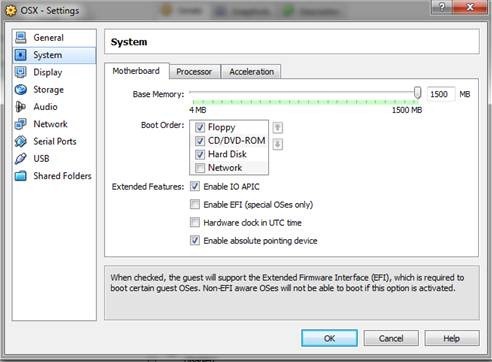
Step 7: Now select “Storage” from the left pane, and then select “Empty” found under the OSX.vdi. Now click on the folder with the green arrow on the right.
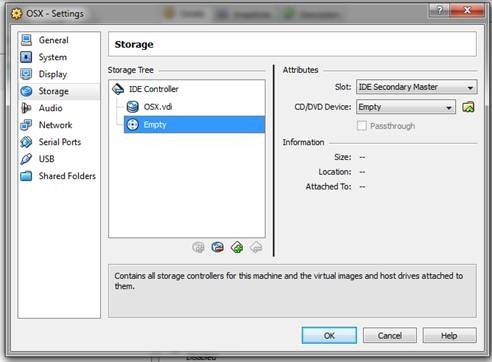
On this window, click Add (Plus sign on 3 CD’s) at the top. Then find and add the OSX86 iso you downloaded earlier. Now highlight it and click Select button at the bottom. Then click OK and hit the main Start button to start your VM.
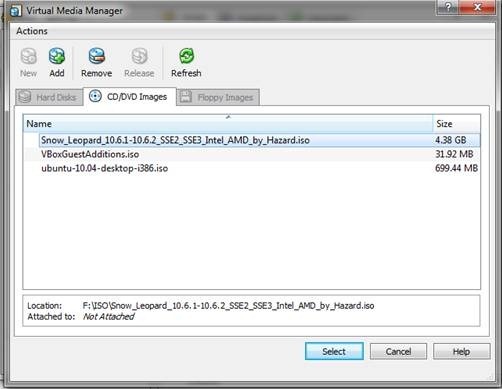
Step 8: Once the VM starts booting, hit F8 and type -v at the boot prompt so that you can see what exactly went wrong if something does go wrong. All the services will run and eventually you should come to the language screen. Choose your language and then click next. If you are unable to move your mouse around then hit Right-Ctrl + I. Click Continue and Agree, and then start Disk Utility found in Utilities menu at the top.
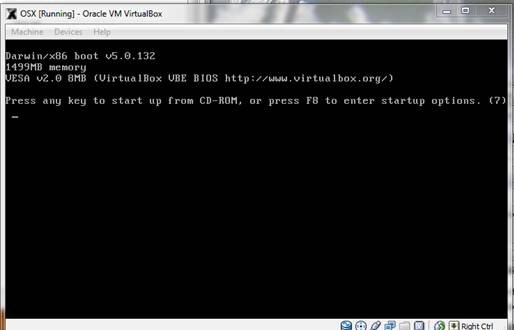
Step 9: At this screen highlight 20GB VBOX HARDDISK. Then click erase at the right and Name it what you want in the name box and then click on “Erase…” button to erase the virtual disk. It shouldn’t take long. Once done, quit the Disk Utility so that you return back to the installer.
![Snow Leopard in VirtualBox (6)[4] Snow Leopard in VirtualBox (6)[4]](http://cdn.redmondpie.com/wp-content/uploads/2010/07/SnowLeopardinVirtualBox64.jpg)
Now simply select the highlighted drive as shown below and click continue.
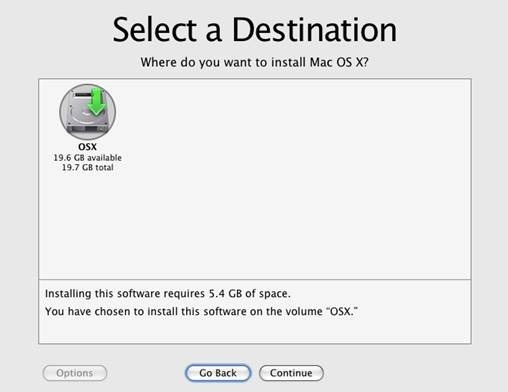
Step 10: Now click on Customize at the bottom left, and check the following:
For AMD Users:
Any Updates included at the top.
Drop down Kernels and choose Legacy kernel.
AMD option below System support.
Any Updates included at the top.
Drop down Kernels and choose Legacy kernel.
AMD option below System support.
For Intel Users:
Any Updates included at the top.
Drop down bootloaders and check the newest Chameleon.
Drop down Kernels and choose Legacy kernel.
Any Updates included at the top.
Drop down bootloaders and check the newest Chameleon.
Drop down Kernels and choose Legacy kernel.
Now click Done and hit the Install button to start the installation.
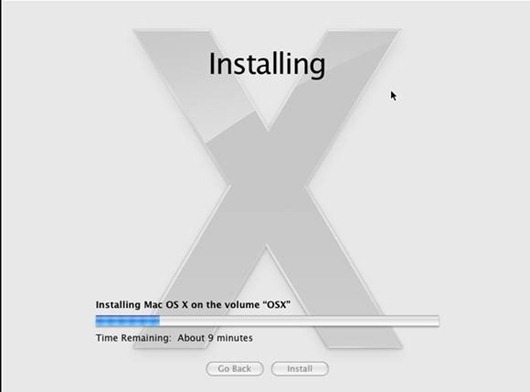
Step 11: As soon as it says installation finished and starts counting down to restart, press the Right-Ctrl and then click on Devices at the top and hit CD/DVD Devices and click Unmount CD/DVD Device. Then click Machine and Reset to restart the VM. Next you’ll see the Chameleon loader and then OS X will begin to boot.
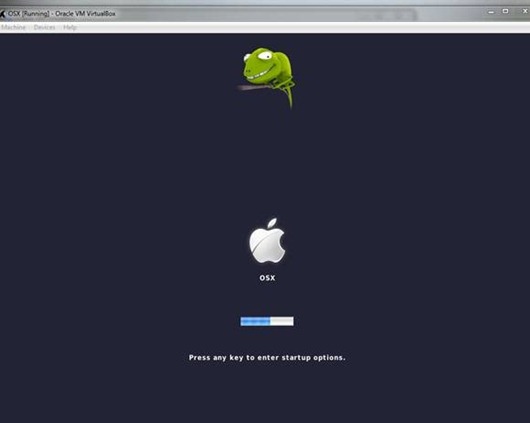
This is it!! After it boots up, you should now be running full Mac OS X Snow Leopard in VirtualBox under Windows 7 / Vista or XP.


0 comments:
Post a Comment